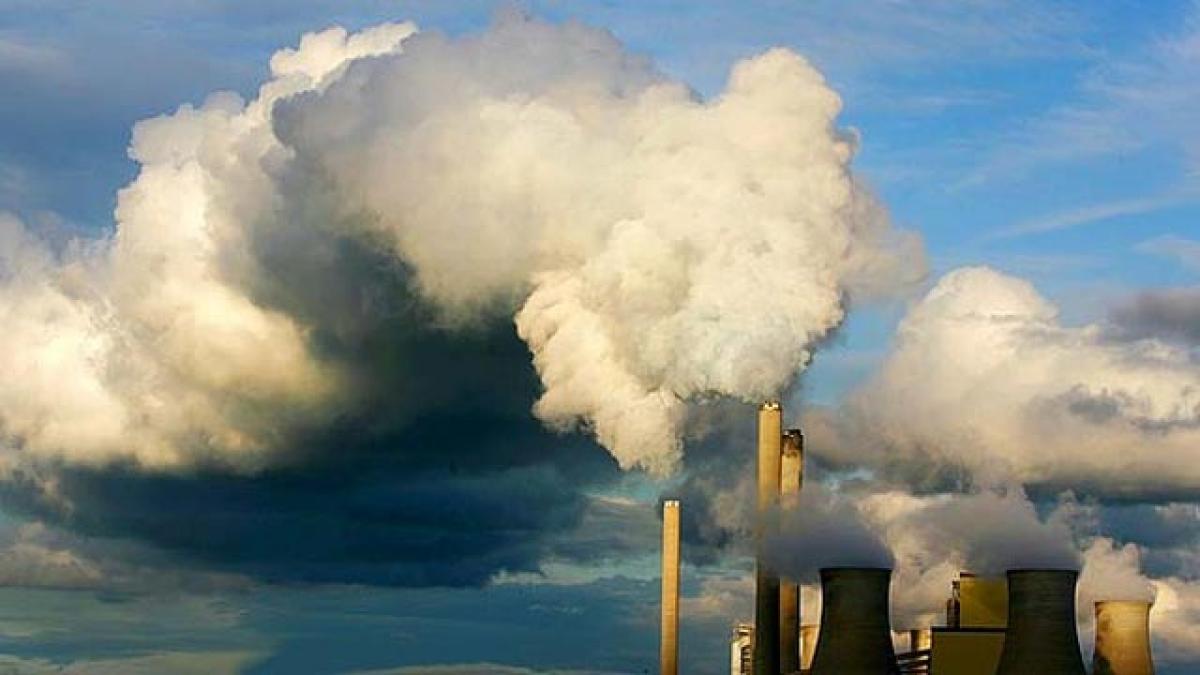Live
- Share of top 50 stocks to total market cap at all-time low: Report
- Nortje ruled out of SA’s remaining white-ball matches against Pakistan
- Mamata doesn't want INDIA bloc to succeed, claims BJP's Rahul Sinha
- Air India Express cancels flights at Chennai airport due to deluge
- Kejriwal promises Rs 2,100 for Delhi women if AAP wins polls, BJP takes ‘lollipop’ jibe
- JPC Chairman supports Assam govt's 'No NRC, No Aadhaar,' rule
- Stoinis vows to revive Melbourne Stars’ glory with fresh leadership
- DDA easing freehold conversion of shops: MoS Sahu
- CP Sudheer Babu Updates on Manchu Family Cases
- Keerthy Suresh Marries Long-time Friend Antony Thattil in Goa
Just In

Even before the entry into force of the Paris climate agreement that saw global jubilation just six months ago, we are faced with the possible risk of exit by referendum from the pledge of an ambitious reduction in the emission of Green House Gases (GHGs).
Brexit would mean that EU, as well as Britain, has to notify its revised pledge. This would mean renewed consultations with the remaining 27 EU countries and a new exercise within Britain of determining its national contribution
Even before the entry into force of the Paris climate agreement that saw global jubilation just six months ago, we are faced with the possible risk of exit by referendum from the pledge of an ambitious reduction in the emission of Green House Gases (GHGs).
The United Kingdom, one of the 28 countries of the European Union (EU) that collectively pledged the ambitious reduction of at least 40 per cent by 2030 compared to 1990, is holding a yes-no referendum on June 23 to determine if it wants to be part of the Union.
Brexit, an exotic word coined by the media to describe "British exit,” is likely to deal a huge blow to the carefully and successfully negotiated Paris agreement, turning the euphoria generated to EU-phobia.
Brexit is making global headlines. Not only the British and European elite but world renowned politicians, heads of the state, Nobel laureate economists, the IMF chief, academia and media have written and opined about possible impact of Brexit.
Such impact analysis has remained confined to the flow of immigrants, economic growth, employment potential, market, trade, foreign investment, EU regulations and constraints and Britain's global image.
Many experts, including those from India, have analysed the impact of Brexit on their own countries. It is strange, and even inexplicable, that the impact of Brexit on the Paris deal and global warming has been minimal. The economic impact has been quantified by well-known consultancy agencies but not the climate impact.
Even US President Barack Obama, who was in Britain on the day the world leaders gathered in New York to sign the Paris pact, campaigned against Brexit side-by-side with Prime Minister David Cameron.
He highlighted the loss of trade opportunities and degradation of Britain's privileged global image. The media, that was ecstatic in reporting the deal, now focussed mainly on the adverse impact on Britain's energy access than on the climate deal.
Under the Paris agreement, all parties, including regional economic organizations like EU and their member states, each member state individually and the EU as a whole, will be responsible for the allocated emission level.
Brexit would mean that EU, as well as Britain, has to notify its revised pledge. This would mean renewed consultations with the remaining 27 EU countries and a new exercise within Britain of determining its national contribution.
Till now, 177 member-states have signed the Paris agreement but only 17 have ratified it through their national legal process. Its entry into force will be when 55 Parties to the Convention, accounting for at least an estimated 55 per cent of the total GHG emissions, have ratified the Protocol.
The 17 Parties - nearly all of them small island countries - that have ratified the pact represent only 0.04 per cent of the total global GHG emissions. There is a long way to go before the Paris agreement enters into force and the legal implementation begins.
China and the US together account for nearly 40 per cent of global GHG emissions. The EU, which has a 10 per cent share, is therefore key to making the Paris agreement work.
But the scenario after Brexit as of today the yes-no votes seem to be running neck-and-neck may be even scarier than just delay in operationalising the Paris agreement.
Hard core conservationists, right wingers who are doggedly fighting with a fear-fuelled drive against immigration are not far from the likes of Australia's Tony Abbott or Canada's Stephen Harper, who had just walked out of the Kyoto Protocol 15 years after its implementation began.
We also saw the dastardly personification of that extremism when British MP Joe Cox was murdered in broad daylight. Coxit had shown that Brexit could even be Climexit for the UK. Coming at the time when 14 of the last 15 years were the hottest in human history and May 2016 was the hottest month on records, Brexit would be the first and even fatal blow to the Paris agreement.
European Commission President Jean-Claude Juncker, towards the end of the Paris meeting on December 12, 2015, stated: "Today the world is united in the fight against climate change. Today the world gets a lifeline." Not sure if the world in united, but the UK is divided. And world indeed needs a lifeline if the referendum results into Brexit.
By Rajendra Shende

© 2024 Hyderabad Media House Limited/The Hans India. All rights reserved. Powered by hocalwire.com







